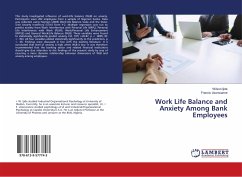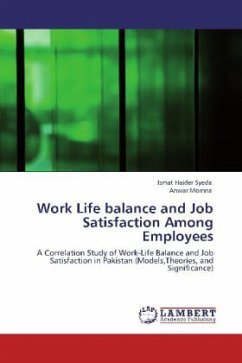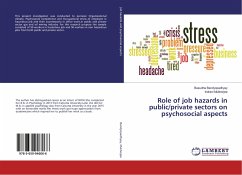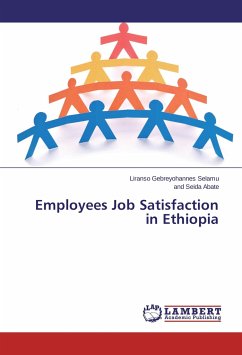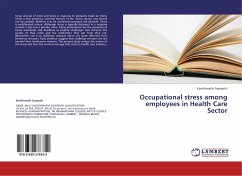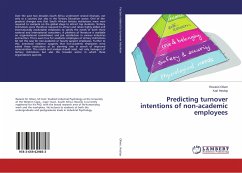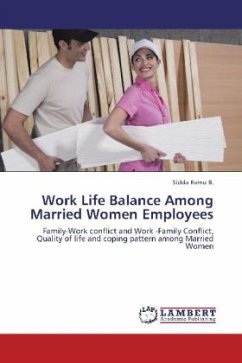
Work Life Balance Among Married Women Employees
Family-Work conflict and Work -Family Conflict, Quality of life and coping pattern among Married Women
Versandkostenfrei!
Versandfertig in 6-10 Tagen
45,99 €
inkl. MwSt.

PAYBACK Punkte
23 °P sammeln!
Work-life balance is usually associated with flexible working, reductions in working time, and practices that cater to the need to juggle both family and employer demands. Work-family conflict is defined as a type of inter-role conflict wherein some responsibilities from the work and family domains are not compatible and have a negative influence on an employee s work situation. Family-work conflict also is a type of inter-role conflict in which family and work responsibilities are not compatible. Family-work conflict is more likely to exert its negative influences in the home domain, resultin...
Work-life balance is usually associated with flexible working, reductions in working time, and practices that cater to the need to juggle both family and employer demands. Work-family conflict is defined as a type of inter-role conflict wherein some responsibilities from the work and family domains are not compatible and have a negative influence on an employee s work situation. Family-work conflict also is a type of inter-role conflict in which family and work responsibilities are not compatible. Family-work conflict is more likely to exert its negative influences in the home domain, resulting in lower life satisfaction and greater internal conflict within the family unit. This book highlights the Work- family conflict (WFC) and Family Work Conflict (FWC) among the married women, the various coping patterns used by the married women employees, the quality of life of married women employees and the differences based on various socio-demographic factors and quality of life, copingpatterns and work family conflict and family work conflict of married women employees.



